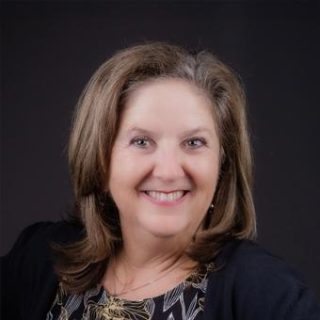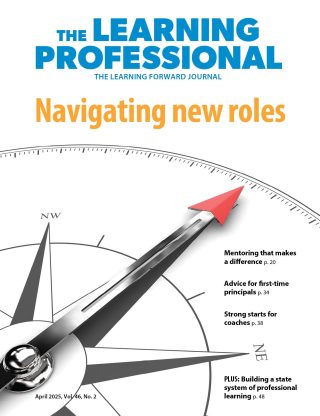IDEAS
New standards call for new practices: Classroom observation protocol helps science teachers adapt to new content
By Rolf K. Blank and Brett Moulding
February 2019
Vol. 40 No. 1
Read the remaining content with membership access. Join or log in below to continue.
Sed ut perspiciatis unde omnis iste natus error sit voluptatem accusantium doloremque laudantium, totam rem aperiam, eaque ipsa quae ab illo inventore veritatis et quasi architecto beatae vitae dicta sunt explicabo. Nemo enim ipsam voluptatem quia voluptas sit aspernatur aut odit aut fugit, sed quia consequuntur magni dolores eos qui ratione voluptatem sequi nesciunt. Neque porro quisquam est, qui dolorem ipsum quia dolor sit amet, consectetur, adipisci velit, sed quia non numquam eius modi tempora incidunt ut labore et dolore magnam aliquam quaerat voluptatem.
References
Achieve & Lead States. (2013). Next Generation Science Standards: By states, for states. Washington, DC: National Academies Press.
Blank, R.K. & Moulding, B. (2017). Partnership for Effective Science Teaching and Learning MSP program evaluation: 2015 to 2017. Available at https://pestl.org.
Council of State Science Supervisors. (2017). Science Professional Learning Standards. Available at www.csss-science.org/downloads/SPLS.pdf.
Daehler, K., Folsom, J., & Shinohara, M. (2011). Making sense of science: Energy for teachers of grades 6-8. San Francisco, CA: WestED & NSTA Press.
Moulding, B. (2015, October). Partnership for Effective Science Teaching and Learning (PESTL): A vision and plan for science teaching and learning. Presentation at Utah MSP meeting, Salt Lake City, UT.
Moulding, B., Bybee, R., & Paulson, N. (2015). A vision and plan for science teaching and learning. Salt Lake City, UT: Essential Teaching and Learning Publications.
National Research Council. (2007). Taking science to school: Learning and teaching science in grades K-8.Washington, DC: The National Academies Press.
National Research Council. (2008). Ready, set, SCIENCE!: Putting research to work in K-8 science classrooms.Washington, DC: The National Academies Press.
National Research Council. (2012). A framework for K-12 science education: Practices, crosscutting concepts, and core ideas. Washington, DC: The National Academies Press.
NORC. (2017). State policies for science and mathematics assessment. Available at https://stem-assessment.org.
Porter, A.C. (2002). Measuring the content of instruction: Uses in research and practice. Educational Researcher, 31(7), 3-14.
Resnick, L.B., Rothman, R., Slattery, J.B., & Vranek, J.L. (2004). Benchmark and alignment of standards and testing. Educational Assessment, 9(1-2), 1-27.
Student Achievement Partners. (2017). Instructional leadership and the Common Core. New York, NY: Author. Available at https://achievethecore.org/page/403/instructional-leadership-and-the-common-core.
Recent Issues
LEARNING DESIGNS
February 2025
How we learn influences what we learn. This issue shares essential...
BUILDING BRIDGES
December 2024
Students benefit when educators bridge the continuum of professional...
CURRICULUM-BASED PROFESSIONAL LEARNING
October 2024
High-quality curriculum requires skilled educators to put it into...
LEARNING TO PIVOT
August 2024
Sometimes new information and situations call for major change. This issue...












